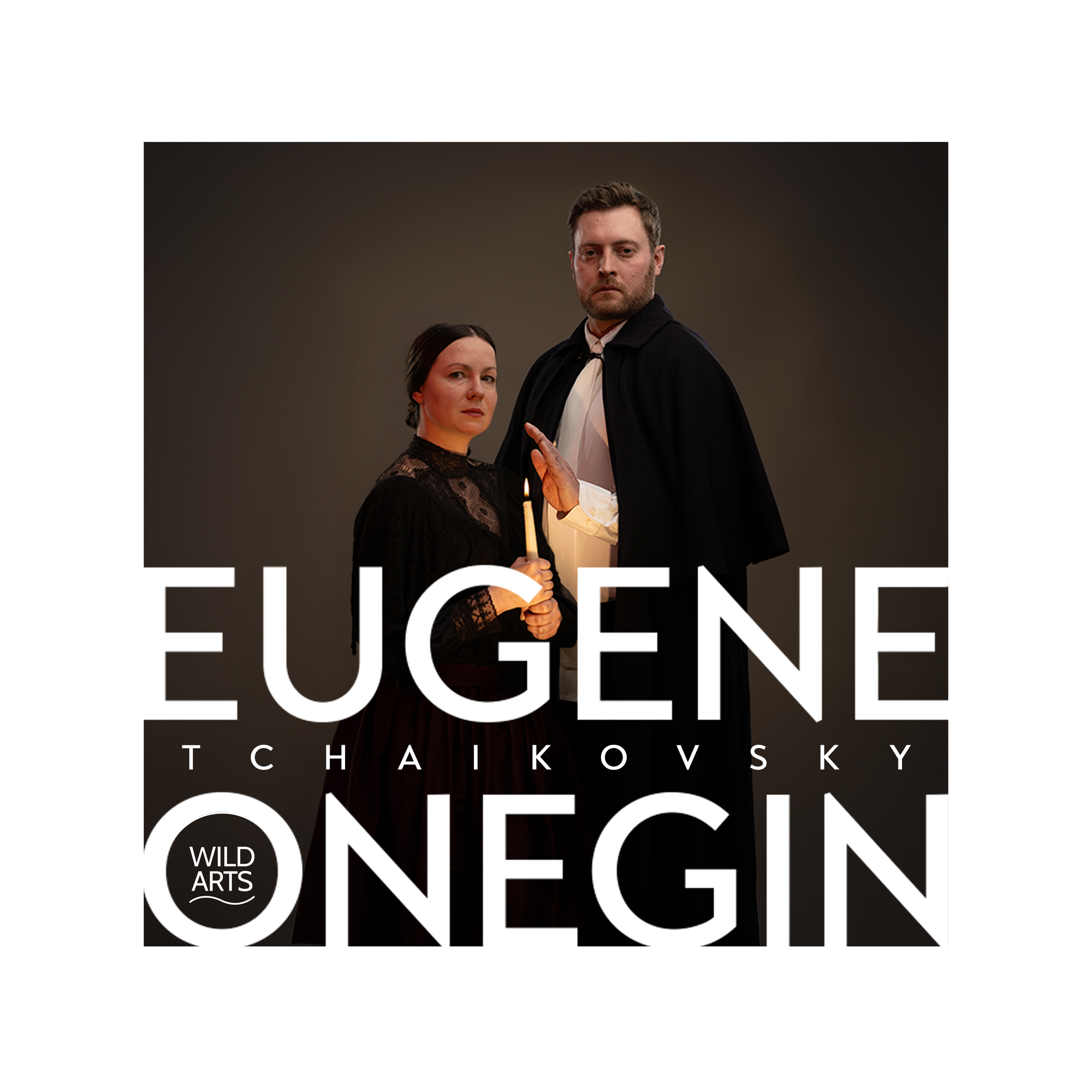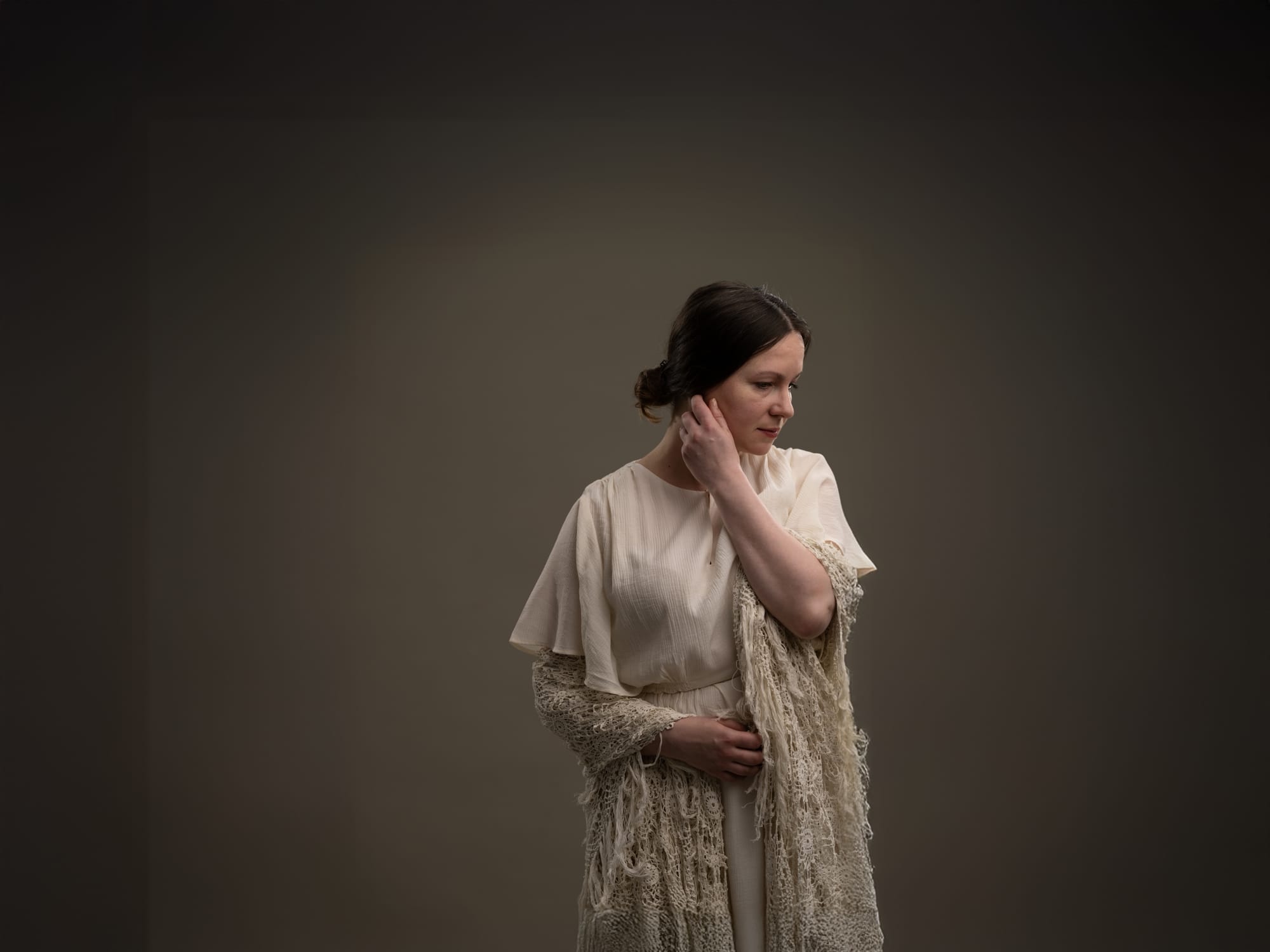Thaxted Festival 2025: Wild Arts presents "Eugene Onegin"
Wild Arts seems to flourish on challenge; its Onegin counts as a notable success

Tchaikovsky Eugene Onegin (arr. Jopling, sung in English translation by Siofra Dromgoole) Cast; Wild Arts Ensemble / Otis Lineham (conductor). Thaxted Parish Church, 12. 07.2025
Production:
Director – Dominic Dromgoole
Designer – Tatiana Dolmatovskaya
Movement Director - Siân Williams
Cast:
Eugene Onegin – Timithy Nelson
Tatyana – Galina Avelina
Lensky – Xavier Hetherington
Olga – Emily Hodkinson
Prince Gremin - Siân Williams
Madame Larina – Hannah Sandison
Filipyevna – Rozanna Mandylus
Monsieur Triquet – Robert Burt
Zaretsky – Alex Pratley
Katerina – Laura Mekhail
Tchaikovsky’s sequence of ‘lyric scenes’ in three acts, Eugene Onegin, is exactly that: each scene has its own tinta,’ and each zooms in on the emotions of the main characters: and, for Tchaikovsky, it was surely Tatiana who is at the core of Tchaikovsky's retelling of Pushkin (the libretto is by the composer and Konstantin Shilovsky). Certainly, Tatiana's ‘Letter Scene’ is crucial, dramatically and musically. The piece is a sequence of tableaux, and the orchestra’s colour is crucial. It is testament to Orlando Jopling's arrangement for chamber ensemble here, then, that the evening worked so well (if not scoring the complete bull’s eye of Wild Arts’ Donizetti Elisir at Thaxted a couple of years back).
Tchaikovsky’s piece is open-hearted, and, for the singers, open-throated: so a reduction to two violins, viola, cello, double-bass, oboe, flute, clarinet, bassoon and horn might seem a step in miniature too far. And, yes, for the big moments, this was inevitably slimline Tchaikovsky; but the advantage was a new appreciation of Tchaikovsky’s linear workings. Indvidual instrumental performances ranged from the meltingly expressive to the valiant; a larger problem was placement. The ensemble was to the side, and there is a large pillar the singers have to negotiate to retain a clear sight-line; also, when a chorus of ladies entered from the opposite side of the church, it did rather feel the distance was too great, and ensemble suffered.
Against that was the sensitive conducting of Otis Lineham, replacing Orlando Jopling, ever moving the music along, demonstrating a fine knowledge of Tchaikovsky’s inner workings.
Dominic Dromgoole’s staging was neutral and minimal, allowing the music to speak for the drama; only the Banquo-like re-appearance of Lensky in the third act (so, posthumously) seemed interventionalist (Lensky’s role does seem to invite twists: in Ted Huffmann’s production, seen at Covent Garden, Lensky tuns the pistol on himself, and commits suicide). A wooden window frame on a pole offered a sense of indoor versus outdoor via the most frugal of means. Some costumes suggested Russian peasantry of Tchaikovsky's or Pushkin’s time; others were less specific. The top hats for Onegin and Lensky brought back memories of Nikolaus Lehnhoff’s staging of the opera; wooden benches were moved into different shapes by the cast.
The principal characters are mainly young in the story, and are certainly taken by emotions of the moment, be that impulsive passion or the need to duel. Good that this cast was young, therefore, and certainly ardent. That certainly applied to the Lensky of Xavier Hetherington, a tenor whose dynamic range seems. to lie firmly around forte/fortissimo: There is no doubting Hetherington’s vocal power. Hetherington sang the title role in Jonathan Dove’s Itch at Opera Holland Park this year (I reviewed the original 2023 incarnation, alas). The Onegin, baritone Timothy Nelson, was musically far more nuanced, but his stage presence is still to be fully developed. That said, I still feel it was my loss to have missed out on his Belcore Elixir of Love at ENO towards the end of last year – I covered the production and idneed that run, but on a night when the role was taken by Dan D'Souza. His final act aria in which he laments his lot was certainly touching.
And what of Tatyana? For that Wild Arts Elixir of yesteryear, Galina Avelina sang Adina; Tatyana is a very different role, and while Avelina’s Letter Scene was perfectly fine, I did not quite believe her emotions there; her voice is, however, impressive when she opens up; and she was fine in the music’s more animated moments. Her diction, too, was notably fine, and her angst became increasingly believable as the story progressed.

As Olga, mezzo Emily Hodgkinson made a real impression (I see Hodgkinson has also sang Larina in this opera for OHP in 2022; sadly, my luck ran out; I reviewed that run, but in a performance with another Larina, one Amanda Roocroft; that was the production that featured the Tatiana of Anush Hovhanissyan). Hodgkinson’s voice is full and clear, and strong; notably, she shone just as much in duet with Tatiana early on as she did in her own aria, an ensemble singer as well as soloist. I would very much like to hear more of her.
One of the finest role assumptions of the night was Sión Goronwy’s Prince Gremin. A true bass who has taken Snug A Midsummer Night’s Dream and Swallow Peter Grimes to multiple houses on the world stage, his voice is a pleasure to experience, rounded, large, nuanced. His final act aria, one of the highlights of Tchaikovsky’s score, ‘Lyubvi vse vozrasty pokorny’ in the original (here, I believe, ‘The gift of love cannot be measured’) served as also one of the musical highlights of the evening. Let's enjoy a swift diversion to enjoy this aria with score: Nicolai Ghiaurov with the Orchestra of the Royal Opera House, Covent Garden, under Solti:
As Triquet, Robert Burt offered masses of character to his contributions, delivered with an easy expertise. Talking of the smaller roles, one always hopes for a discovery. The Egyptian soprano Laura Mekhail, a recent graduate of the RCM, was both fine actress and has a beautiful, clear voice; it was no surprise to learn she was also cover for Tatyana. She is also a Wild Arts Young Artist for 2025; she is joined in this by Alex Pratley, who sang a solid Zaretsky. Mezzo Hannah Sandison was superb as Madame Larina, commanding of presence and beautiful of tone.
But above and beyond all that is the fact that Onegin offers ensemble scenes aplenty; and Wild Ars acts as a collective rather than a collection of starry individuals. This is its greatest strength; and, despite the odd co-ordination problem, the actual managing of choruses in this smaller format was imaginatively handled. Fringe opera by its very nature fosters invention, often as a result of smaller budgets (on need only to think of the recent Bethnal Green Ring). Wild Arts seems to flourish on challenge; its Onegin counts as a notable success.
That Lehnhoff production referenced above available on an Arthaus DVD: the conductor is Genndi Rozhdestvensky, and the cast includes the superb Orla Boyln as Tatyana (and the equally fine Anna Buford as Olga); Michael König is Lensky, and Vladimir Gluschak is Onegin. A later incarnation of this is available an Amazon for a mere £5.99.
